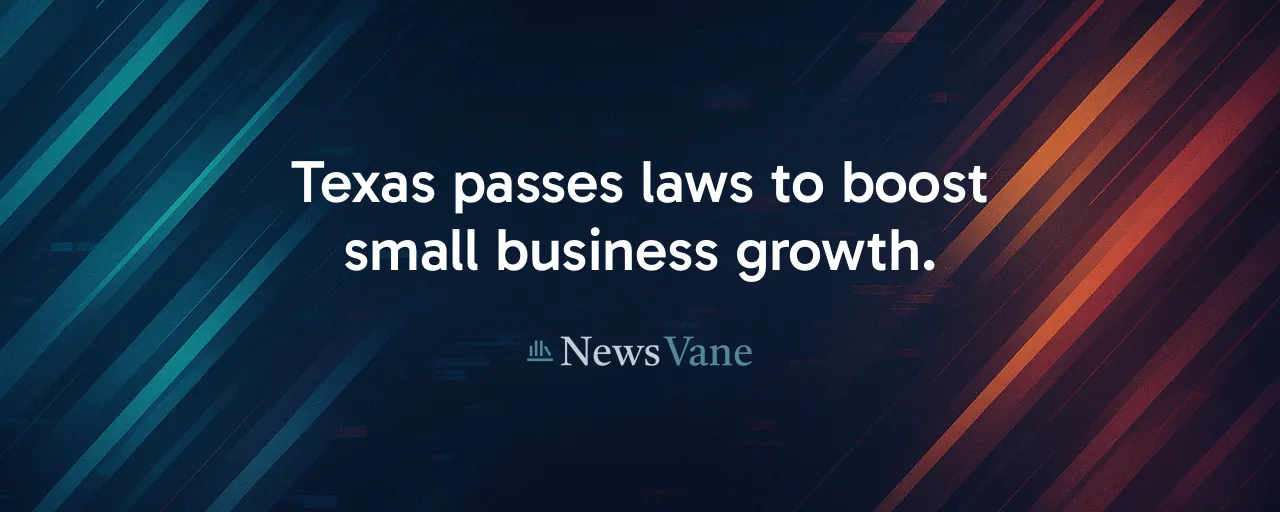A Lifeline for Texas's Small Businesses
Small businesses power Texas, from Dallas barbershops to El Paso craft breweries. On June 12, 2025, Governor Greg Abbott signed five laws to help them thrive. Passed in the 89th Legislative Session, these measures raise tax exemptions, speed up business filings, and reduce local regulations. The aim is to keep Texas the best place to start a company. As these changes unfold, they're fueling a debate about how to grow the economy while protecting public interests.
The need feels pressing. Small businesses employ nearly half the state's workforce and generate vast revenue. Yet they face tough hurdles, high loan costs, hiring woes, and complex rules. A Goldman Sachs survey shows 53% of owners find borrowing unaffordable, and 57% say regulations bog them down. Texas lawmakers argue these laws address those struggles, reinforcing the state's low-tax, pro-business reputation.
Houston, with nearly a million small businesses, is a major engine. Boasting the third-most Fortune 500 headquarters nationwide, the city mixes corporate giants with scrappy startups. Speaking virtually to the Houston Regional Business Coalition, Abbott linked the laws to this economic vitality. His Small Business Freedom Council, started in 2024, laid the groundwork by targeting outdated rules. Now, the focus is on whether these changes will truly lift entrepreneurs or create new challenges.
Breaking Down the New Laws
House Bill 9, alongside House Joint Resolution 1, stands out. It raises the business personal property tax exemption from $2,500 to $125,000, potentially freeing 67% of small businesses from this tax. For a café owner or mechanic, that's money to buy equipment or hire staff. Senate Bill 32, passed earlier, adds a 20% franchise tax credit for inventory costs, expected to save businesses $700 million over two years.
House Bill 346 lets the Secretary of State offer expedited filings, helping entrepreneurs launch quickly. It also locks in a permanent franchise tax exemption and filing fee waiver for veteran-owned businesses, supporting Texas's veterans. House Bill 2464 stops cities from overburdening home-based businesses, like tutors or artisans, giving them flexibility. House Bill 5195 requires state agencies to upgrade websites, making online services more user-friendly for business owners.
These laws signal a major push for tax relief and deregulation. Groups like the National Federation of Independent Business praise them as a boost for small firms. However, some local officials and policy analysts caution that reduced tax revenue could strain public services, and less oversight might weaken consumer protections.
Weighing the Trade-Offs
Texas's approach mirrors a national shift. President Trump's January 2025 executive order pushes federal agencies to slash ten rules for every new one, aiming to drive growth. Economic analysts estimate this could increase GDP by 1-2% over ten years. For small businesses, which spend heavily on compliance, fewer rules could free up resources for expansion. Yet, a Gallup poll from May 2025 reveals many Americans believe regulation is either sufficient or lacking, signaling public concern about loosening oversight.
Some policy experts warn that broad deregulation could harm environmental standards or public safety. They point to the 2008 financial crisis, partly tied to relaxed rules, as a cautionary tale. In Texas, where property taxes fund local services, higher exemptions might limit budgets for schools or infrastructure, a worry voiced by some city leaders. Others argue tax breaks often benefit larger firms more than small ones, potentially deepening economic gaps.
Despite these concerns, optimism persists. The NFIB's June 2025 Optimism Index reached 98.8, aligning with its historical norm, while a Goldman Sachs survey found 78% of small businesses eyeing growth. Digital improvements, like those in House Bill 5195, could amplify gains. Research shows digitally advanced firms cut costs by 20-30%. If state agencies streamline online processes, entrepreneurs could save time on permits or licensing.
What Comes Next
Texas's strategy will draw scrutiny. If it works, it could strengthen the state's lead in attracting businesses, especially as states like Kansas and Washington tweak their own policies. Success depends on execution, whether agencies upgrade systems swiftly, how local governments handle revenue changes, and if rural businesses benefit as much as urban ones.
The tension between regulation and growth is not new. Since the 1970s, U.S. leaders have debated where to draw the line. Texas is betting on less red tape and lower taxes to fuel its economy. For small business owners, the prospect of fewer barriers is appealing, but the broader impact, on fairness, safety, and stability, remains a key question.
As these laws take hold, entrepreneurs will shape the story. Their ability to hire, expand, or simply keep the lights on will reveal whether Texas's plan delivers. For now, the state is banking on giving small businesses room to breathe, hoping it keeps the economy strong and vibrant.
